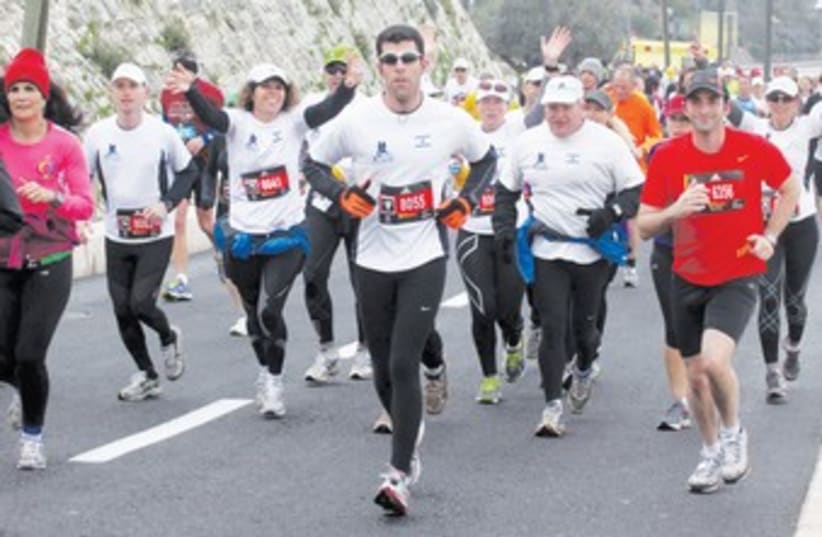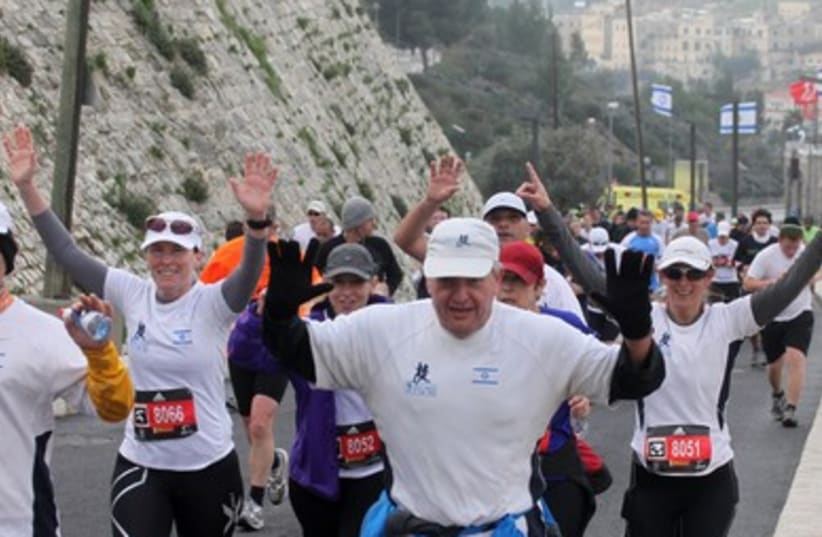
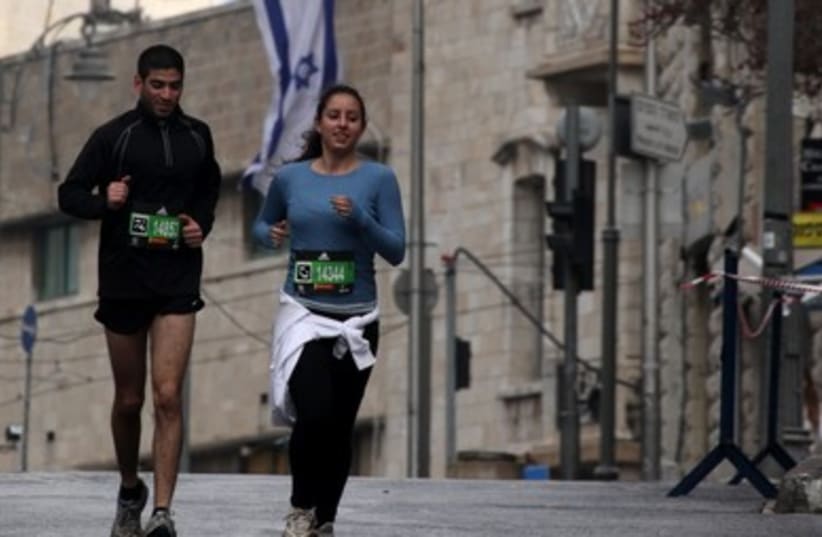
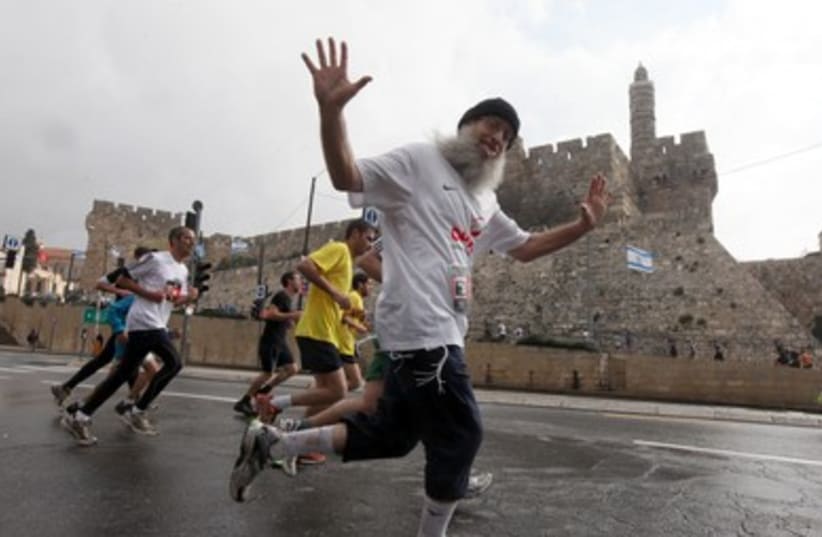
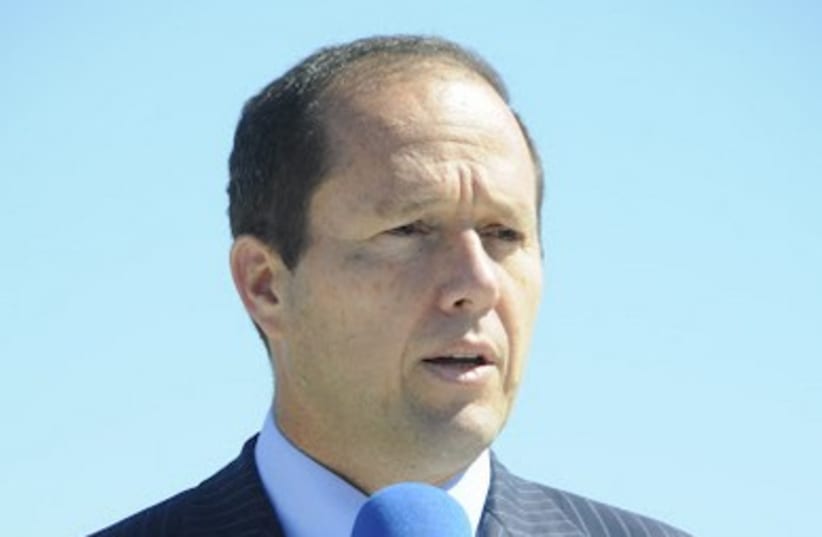
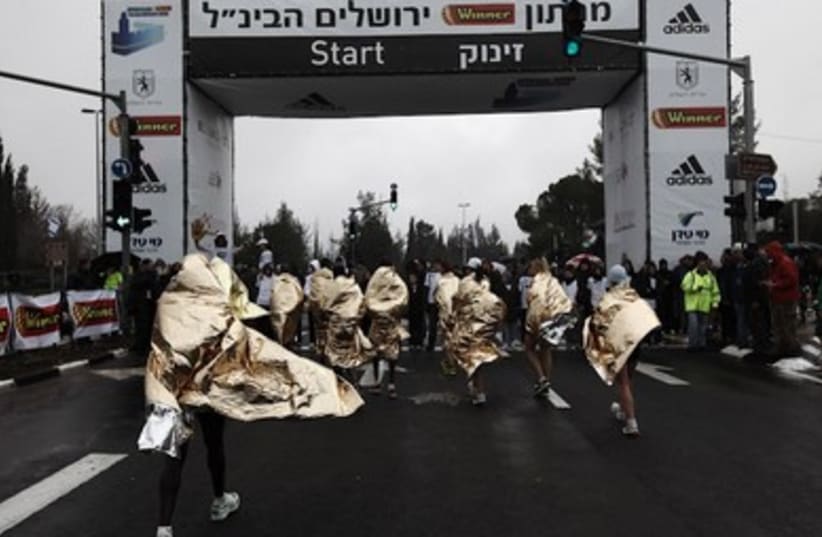
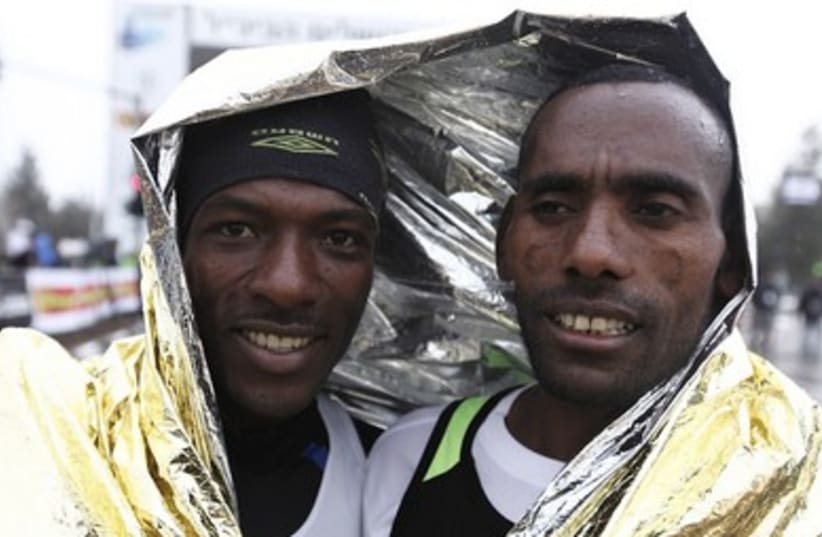
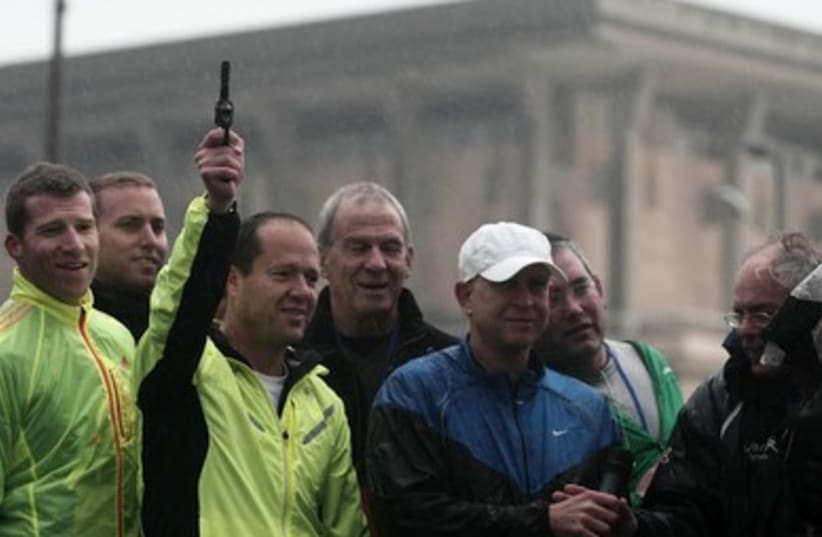
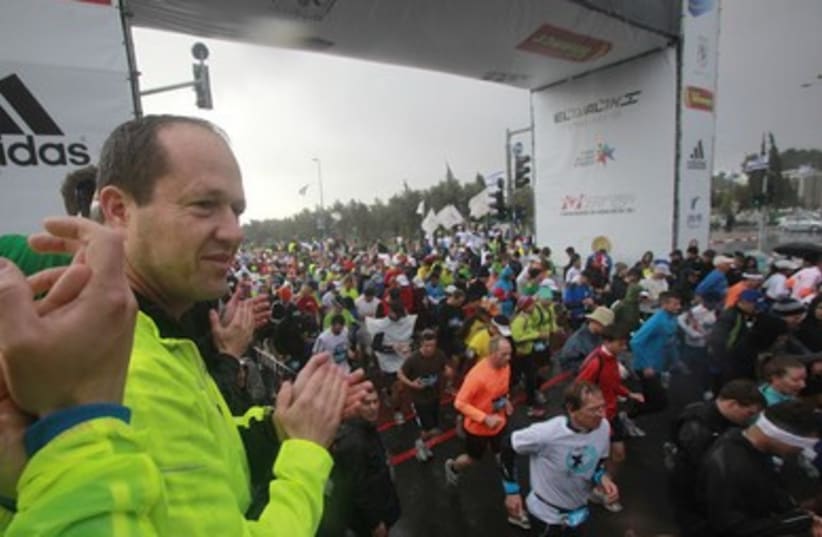
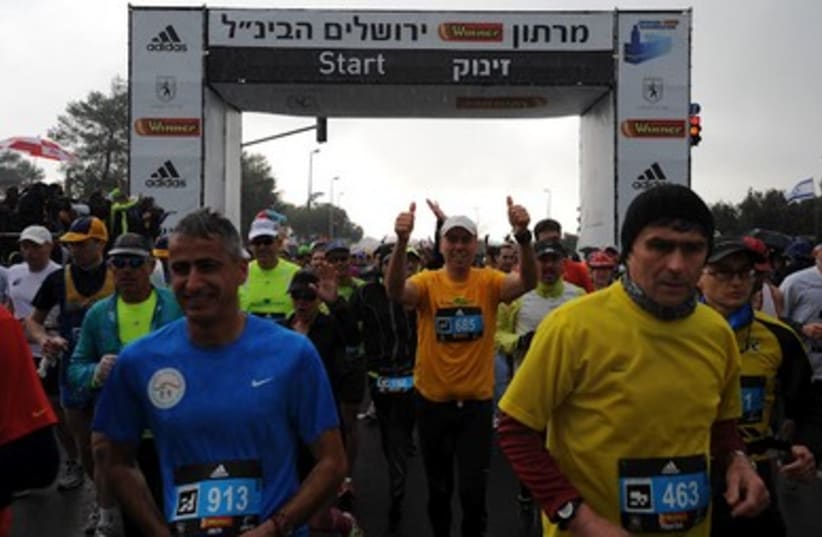
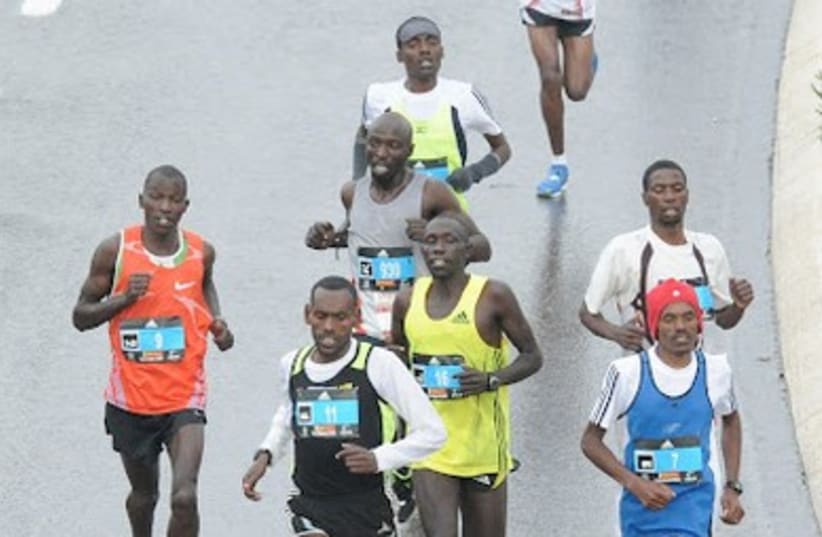
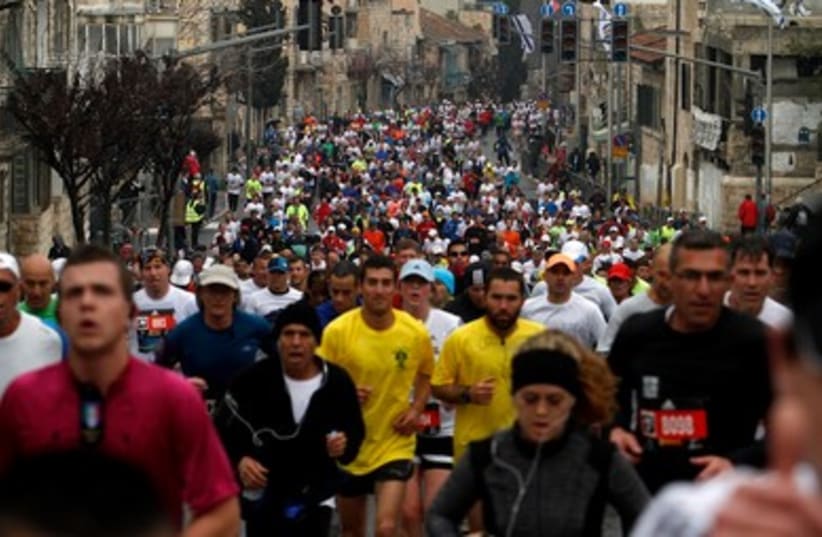
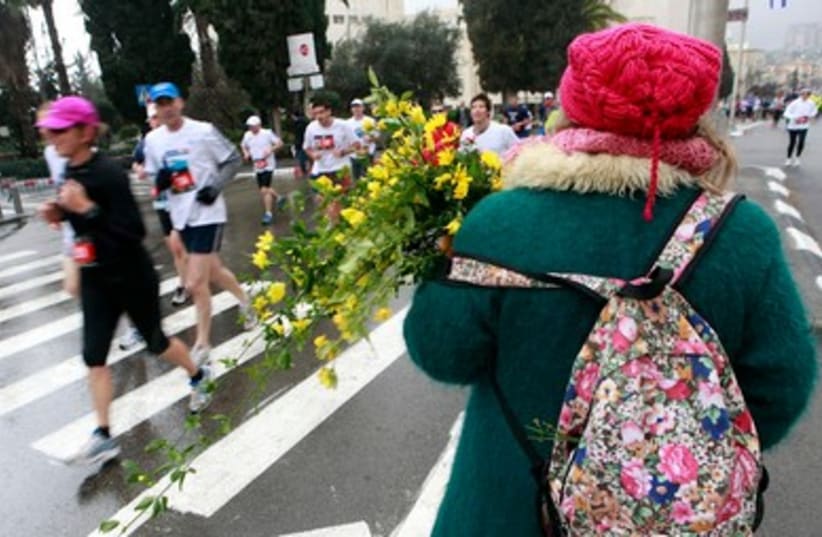
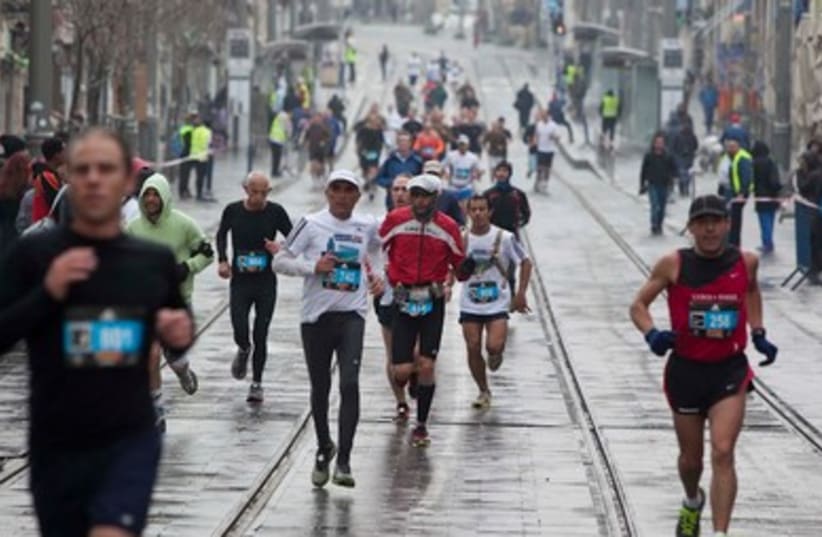

Fifteen thousand runners, including 1,500 runners from abroad, braved the rain, wind and Jerusalem’s infamous hills during the marathon, half-marathon, 10k and 4.2k races. The races went on as scheduled despite stormy weather and a terrorist attack on the light rail a day earlier, when a Palestinian teenager stabbed a soldier in uniform, wounding her seriously. (The suspect was apprehended at the Kalandiya checkpoint, and the soldier is in stable but serious condition at Shaare Zedek Medical Center.) David Toniok of Kenya won the men’s marathon with a time of 2:19:52, followed by Gudeta Biratu (Ethiopia) in 2:22:42 and John Mutai (Kenya) in 2:23:31.The female winner of the marathon was Mihiret Antios of Ethiopia, who finished in 2:48:38, followed by Kamila Khanipova (Russia) in 2:49:20 and Alena Vinitskaya (Belarus) in 2:50:33.Onesmus Serem won the men’s half-marathon with a time of 1:05:55, and Etalemaha Habtewold won the female division in 1:19:17.But as five-time marathoner Mayor Nir Barkat (who finished the half-marathon in a respectable 2:07:42) said on numerous occasions, Jerusalem is not about setting the fastest time. “Jerusalem is for spirit and beauty,” he said.Last year when I joined Barkat for a training run, he told me that when you do a marathon in a city, the city enters into your soul. As a metro reporter in Jerusalem, I have a complicated relationship with this eternal city. There are some days when I see the wonder and beauty of the place, but most of the time, I deal with the ugly underside: the murders and stabbings, the stoning and corruption, the impossible situation for peace.Running my first marathon last year, just two days after a bus bombing opposite the Jerusalem International Convention Center (Binyenei Ha’uma) in which a woman was killed and 39 other people were injured, I was so overwhelmed from reporting on my first terror attack that I did not know if I would have the mental strength to finish. I struggled over the finish line, but barely.This year, I also reported on a terror attack the day before the race. But a year of reporting in Jerusalem taught me not to be surprised that the marathon went ahead as planned. Four hundred police officers fanned out to secure the course – but not a single runner pulled out, according to the municipality.Over the past year, I learned that there is a strength to the soul of this city, a strength that gets stronger with trauma. It is a simple lesson that I am sure I could have learned without pounding the pavement for 42.2 kilometers two years in a row, but nothing drove the message home more clearly.I know that many Jerusalem residents were frustrated by the shutdown of roads, and bemoaned the disruption to daily life. So I want to share with you what it is like to fly down Hatzanchanim Street toward Damascus Gate, with the Hebrew University glinting in the distance, or to struggle against wind so fierce next to the Haas Promenade that I forgot to look at the view of the Temple Mount. I want to share what it is like to be inspired by starting the race with Richard Bernstein, a blind lawyer from Detroit, Michigan, who has completed 16 marathons and runs with his guide, Maj. Shaked, to advocate for the integration of disabled Israelis into the military and society.I want to share my utter relief when I saw my friends at the 40 kilometer mark, who brought their dog – one of my most faithful training partners – to run those terrible last 2k with me. And what it was like when another running buddy – who was injured herself – joined me for the kilometer-long uphill “suffer- fest” of Kovshei Katamon Street, where a sign promised home-baked cookies.That’s when my running mix chose to play Tim McGraw’s country ballad “Live Like You were Dying,” which is an accurate summation of my emotional state at that point.“Oh boy, oh boy,” one runner panted as he staggered over the finish line a few minutes behind me. “I’ve done 50 marathons, but no doubt about it, this was the toughest one.”“Will you be back next year?” I asked. “With God’s help!” he answered.After two full years of hammering the streets of Jerusalem on my runs, I’ve learned a few things about this city and the characters that populate its streets. Running a marathon is an intensely personal, intensely emotional experience. This is even more apparent in a city such as Jerusalem, a city that regularly tramples over my emotions and surprises me with new and impossible news stories almost every week, some of which restore my faith in humanity, but most of which break my heart.“I know the public understands that the response to terror is to be on the starting line tomorrow,” Barkat said at the hospital on Thursday, after visiting the soldier injured in Thursday’s terrorist attack. Just before the starting gun went off on Friday at 7 a.m., I looked all around me at runners trying to keep warm in the steady rain. We were a spandex-clad, arguably insane group of people just about to embark on an incredibly grueling race, but I knew he was right.
